Courageous Conversations: March 21
Faith Matters: Why Engaging Religious Diversity Should be a Top Priority
We are amidst a social reckoning, one shaped by a rising tide of racism, religious intolerance, and social polarization. This reckoning is led by competing powerful social movements, often shaped by a plurality of social identities, including at the intersections of race, language, Indigeneity, disabilities, gender, and sexual orientation. Religion, and its intersection with other social identities, is too often avoided despite rising religious intolerance and hate crimes that target Muslims, Jews, Sikhs, among other religious communities. Religion is an important social identity, and its intersection with other identities shapes the lived experiences and perspectives of many members of our campuses and in the wider community. We ignore the importance of religious diversity at our own peril - because if we cannot recognize the impact of our social identities on our histories, experiences, and perspectives, then we cannot anticipate and prevent or change rising misunderstanding, mistrust, exclusion, and conflict. If we better understood the potency of religion and spirituality in the lives of individuals and communities, we could begin to harness our shared spirit towards a common purpose - and social impact. Public institutions, particularly universities, have an important role to play in cultivating respect for religious diversity and political pluralism, in facilitating a shared understanding among diverse identities – for the public good, social well-being and social prosperity. What are some historic civic and service successes of religious and spiritual communities that can be drawn upon to combat racism and foster respect for religious diversity? How can a university help foster these possibilities – and with what positive social impact?
Faith Matters: Why Engaging Religious Diversity Should be a Top Priority
Speaker
Dr. Eboo Patel
Dr. Eboo Patel is a widely acclaimed civic leader who believes that religious diversity is an essential and inspiring dimension of democracy.
Named “one of America’s best leaders” by US News and World Report, Dr. Patel is the Founder and President of Interfaith Youth Core (IFYC), the leading interfaith organization in the United States. Under his leadership, IFYC has worked with governments, universities, private companies, and civic organizations to make faith a bridge of cooperation rather than a barrier of division. He served on President Obama’s Inaugural Faith Council. Currently, Dr. Patel is an Ashoka Fellow. He holds a doctorate in the sociology of religion from Oxford University, where he studied on a Rhodes scholarship. He has given hundreds of keynote addresses, and has written five books, including Acts of Faith: The Story of an American Muslim, the Struggle for the Soul of a Generation (2020); Out of Many Faiths: Religious Diversity and the American Promise (2019); Interfaith Leadership: A Primer (2016); Sacred Ground: and Pluralism, Prejudice, and the Promise of America (2012). His forthcoming book is entitled: We Need to Build: Field Notes for Diverse Democracy, which will be published in March 2022. Dr. Patel lives in Chicago with his wife, Shehnaz, and two sons.
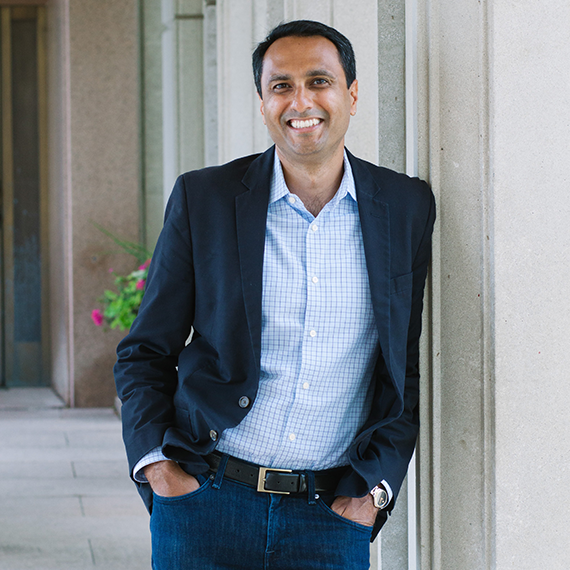
Moderator
VICE-PROVOST AND ASSOCIATE VICE-PRESIDENT RESEARCH (EQUITY, DIVERSITY AND INCLUSION)
PROFESSOR | POLITICAL SCIENCE | FACULTY OF ARTS | UNIVERSITY OF CALGARY
Dr. Malinda Smith holds a PhD in political science from the University of Alberta, an MA, MDA, and a BA magna cum laude in political science and criminal justice, from Western Michigan University. She is a co-author of The Equity Myth: Racialization and Indigeneity at Canadian Universities (2017), co-editor of Nuances of Blackness in the Canadian Academy: Teaching, Learning, and Researching While Black (UofT Press, 2022), editor of three books on Africa, including Securing Africa: Post-9/11 Discourses on Terrorism (2010), as well as co-editor of Critical Concepts: An Introduction to Politics, 6/E under revision with OUP (2022); and States of Race: Critical Race Feminism for the 21st Century (2010).
Dr. Smith serves on several national bodies, including SSHRC Council and Executive, and Statistics Canada’s Immigration and Ethnocultural Committee.
Dr. Smith is a 2018 Pierre Elliott Trudeau Foundation Fellow and the recipient of numerous awards and fellowships, including Compelling Calgarians (2021), the Susan S. Northcutt Award from the International Studies Association (2020), 100 Accomplished Black Women Honouree (2020), the Rosalind Smith Professional Award (2020), the ISA-Canada Distinguished Scholar Award (2018-19), the HSBC Community Contributor of the Year Award (2016); and the Equity Award from the Canadian Association of University Teachers (2015).
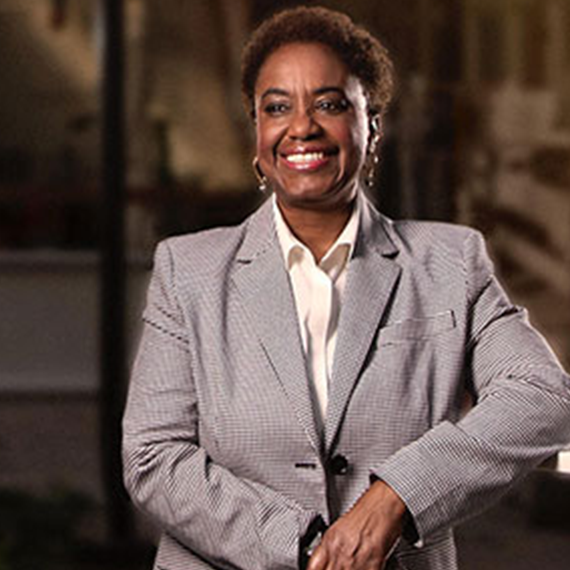
Blessing
Oki nistowaok Sipiyanatohkomia”ki
Elder Colleen Sitting Eagle is the Siksika Language Instructor at Siksika Outreach School located in Siksika Nation since 2009.
Previously, Colleen worked as a researcher with Blackfoot Crossing Historical Park. She has worked with Siksika culture and heritage since 1992. Colleen learned her Siksika history from her late parents and the honour of working with knowledgeable elders.
She was one of the first groups from Siksika to be integrated to start her schooling in Strathmore, AB. She previously attended and continues to take courses from the University of Calgary. She is the proud mother of three children and eight grandchildren.
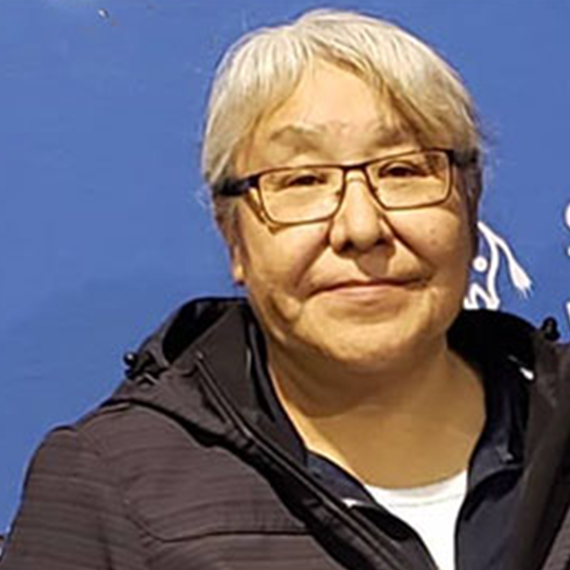
Guest Moderators
Dr. Aleem Bharwani, MD, is a physician, clinical associate professor, and director of Public Policy and Partnerships for the Indigenous, Local and Global Health Office in the Cumming School of Medicine and O'Brien Institute for Public Health. He has been recognized nationally and internationally for his leadership. He co-founded the UCalgary Pluralism Initiative and chairs the Research, Social Innovation, and Engagement Committee. A graduate of the Harvard Kennedy School of Government, he is an active community citizen serving on a variety of community and corporate boards.
Follow @AleemBharwani on Twitter.
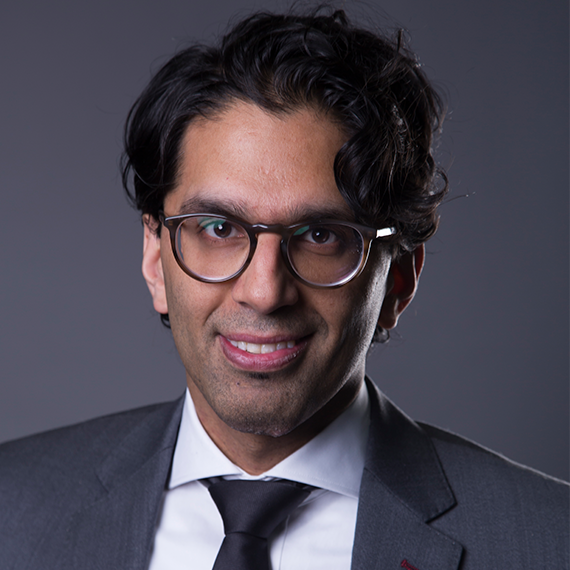
Dr. Aruna Srivastava is an Associate Professor in the Department of English and is affiliated with the International Indigenous Studies Program in the Faculty of Arts. Over her years at the University of Calgary, she has engaged in research and teaching in race, racism and anti-racism, decolonization, Indigenous peoples in global contexts, the politics of reconciliation, disability and chronic illness. She has worked particularly on pedagogies related to these fields.
She has held various leadership positions and been an advisor to the Faculty of Graduate Studies on Equity, Diversity, and Inclusion, focussing especially on Indigenous initiatives; Aruna has worked for many years in Calgary as an anti-racism educator and consultant.
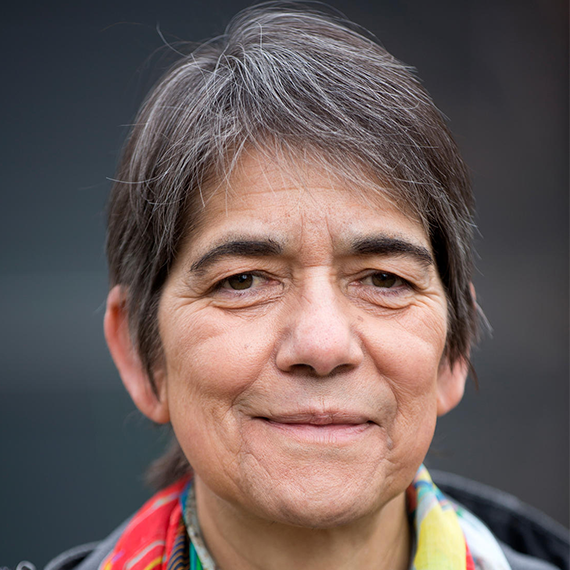
Additional readings and accessible materials from the presentation
Dr. Eboo Patel
- Website: https://ifyc.org/eboo
- Browse the IFYC library to find useful resources, including downloadable PDFs, videos, webinars, and podcasts
- Books & Key Publications
- Patel, Eboo. 2022. We Need to Build: Field Notes for Diverse Democracy. Beacon Press, May 10, 2022
